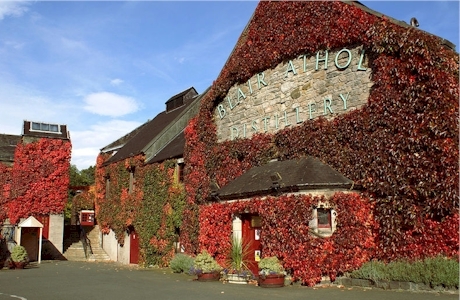THE HISTORY OF SCOTCH
By Steve Kirwan
The origins of distillation trace back over 3000 years to ancient Mesopotamia, when the Babylonians distilled local plant juices to make perfume. Distillation reduced spoilage, allowing wide-ranging trade that was otherwise impossible. Ancient Chinese applied a similar technique, creating spoilage-resistant alcohol-based fragrances from rice and herbs, and by the tenth century, rice-based alcoholic beverages. 11th-century European monks imported the technology, distilling quick-spoiling wine and beer into stronger spirits able to withstand long pilgrimages.
Twelfth-century Irish monks distilled a primitive spirit directly from grain mash, regionally dubbed “usquebaugh” or “uisce beatha” (Celtic for the Latin “aqua vitae,” meaning “water of life”). As its popularity grew, usquebaugh production spread throughout Ireland and into Scotland. Over the ensuing several hundred years, production and consumption exploded, and the name simplified first to “uisce,” and eventually to “whisky” (or “whiskey,” depending on location). Historians generally agree that these early malts were likely inconsistent and extremely potent, nearly unrecognizable compared to modern whisky.
Initially a medicinal tonic, whisky surged as a fashionable indulgence to “raise the spirits” and celebrate happy events. Over time, it became synonymous with daily Scottish life, inseparably entwined with Scotland’s history, culture, and national identity (the very reason it’s now called “Scotch”). And as whisky consumption increased, the Scottish Crown began taxing its production.
To avoid paying the tax, many distillers ceased reporting production. The ensuing cat-and-mouse game between the Crown and burgeoning moonshiners spawned ever-increasing prohibitions against private whisky distillation. Despite attempts to outlaw individual stills, whisky’s popularity mushroomed.
Steadily increasing whisky taxation fueled the moonshining movement, and by 1777, only eight distilleries paid taxes. Parliament drastically cut the legal limits of personal production to force purchases from tax-paying distillers. When that effort failed, they outlawed private production altogether. Excisemen began hunting illicit stills, confiscating up to 14,000 annually. Yet despite the intensive crackdown, the majority of whisky consumed in Scotland was illegally produced.
To quash rumblings of an underground rebellion, King George IV repealed the personal whisky ban in 1832, allowing moonshiners to purchase cheap licenses and pay a small per-gallon fee. Whisky production and quality skyrocketed, spurred on by two key events: the invention of the column still and the subsequent “Great French Wine Blight.”
In 1831, Irish-born tax exciseman and inventor Aeneas Coffey, dubbed “the father of blended Scotch whisky,” and “the Henry Ford of whisky,” revolutionized whisky distilling by inventing the column still (“Coffey” or “Patent” still) specifically for non-malted grains. By allowing faster distillation and a lighter and more consistent product, he profoundly broadened Scotch whisky’s appeal and availability.
In the 1840s, Andrew Usher (Sr.) experimented with blended grain and malt whiskies, but his son, Andrew Usher II (christened “The Father of Scotch Whiskey) perfected the art. His refinements inspired other Scotch pioneers such as John Walker, James Chivas, Tommy Dewar, and James Buchanan to experiment with varied whisky expressions, and ultimately to export Scotch across the globe. Distilling, blending, and maturation continuously improved, and worldwide Scotch demand boomed. Then, after French Cognac and brandy exports ceased due to France’s 1890s Phylloxera wine blight, Scotch supplanted France’s famed distillates as the world’s premier spirit.
Although Scotch demand has slowed in recent years, primarily due to increasing interest in Irish, American, and Japanese whiskeys and other spirits, Scotch remains the pinnacle of liquor sophistication. Whether selecting a low-cost everyday blend or the rarest of aged single malts, Scotch whisky has never been more accessible, of higher quality, or more enjoyable.

